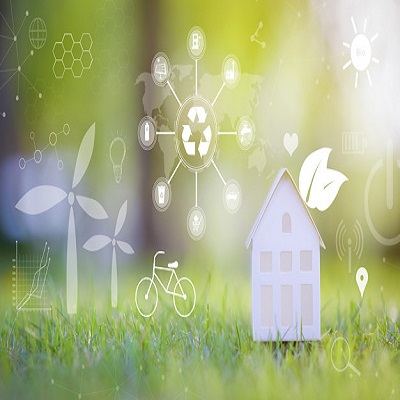In today’s rapidly evolving technological landscape, the integration of Internet of Things (IoT) with Artificial Intelligence (AI) is revolutionizing the way we interact with and utilize natural resources. This union holds the potential to not only enhance our daily lives but also play a crucial role in mitigating environmental challenges. As IoT and AI applications continue to advance, their impact on resource management and conservation becomes increasingly significant.
The convergence of IoT and AI technologies presents a multitude of benefits, offering practical and intelligent solutions that contribute to the preservation of conventional energy resources and the environment. By leveraging data analytics and advanced automation, IoT devices with AI capabilities are reshaping the way we utilize natural resources, optimize energy consumption, and reduce environmental impact.
Energy optimization is a key area where IoT devices with AI are making a substantial impact. Smart meters equipped with AI capabilities can automatically send accurate meter readings and provide insights into energy usage, facilitating efficient energy management. Additionally, remote monitoring and access enable the automated regulation of building processes, such as heating, lighting, and security systems, leading to enhanced energy efficiency and cost savings.
Furthermore, IoT devices with AI support preventive maintenance by detecting equipment disruptions proactively, thereby reducing downtime and labor costs. These technologies also enable innovative solutions such as automatic parking space detection, reservation for electric vehicle charging stations, and sensor-based street lighting systems, all of which contribute to resource conservation and operational efficiency.
In agricultural settings, IoT devices with AI play a crucial role in smart irrigation by monitoring soil moisture, optimizing watering schedules, and providing insights into soil temperature and humidity. This proactive approach to irrigation not only conserves water but also enhances crop yields through efficient fertilization practices.
Moreover, IoT technology facilitates the monitoring of water levels in reservoirs and tanks, providing valuable insights for officials, businesses, and citizens to optimize water usage. Through sensor data analysis, IoT devices with AI capabilities can contribute to significant water savings, potentially reducing daily water consumption by 20%-30%.
It is essential to recognize the critical role of IoT and AI in preserving natural resources for future generations. By harnessing the power of these technologies, we can proactively address resource depletion and environmental degradation, ensuring that our natural resources remain sustainable for generations to come.
In conclusion, the integration of IoT devices with AI represents a transformative approach to resource management and environmental sustainability. By leveraging data-driven insights and advanced automation, these technologies offer practical solutions to optimize resource usage, reduce energy consumption, and contribute to environmental preservation. Embracing the potential of IoT and AI in conserving natural resources is not only a technological imperative but also a moral obligation to safeguard our planet for future generations.
WhizNets Inc. is at the forefront of IoT and AI innovation, empowering businesses and individuals to harness the potential of these technologies for sustainable resource management and environmental conservation. Contact us to explore how our IoT solutions can contribute to a more sustainable future.
